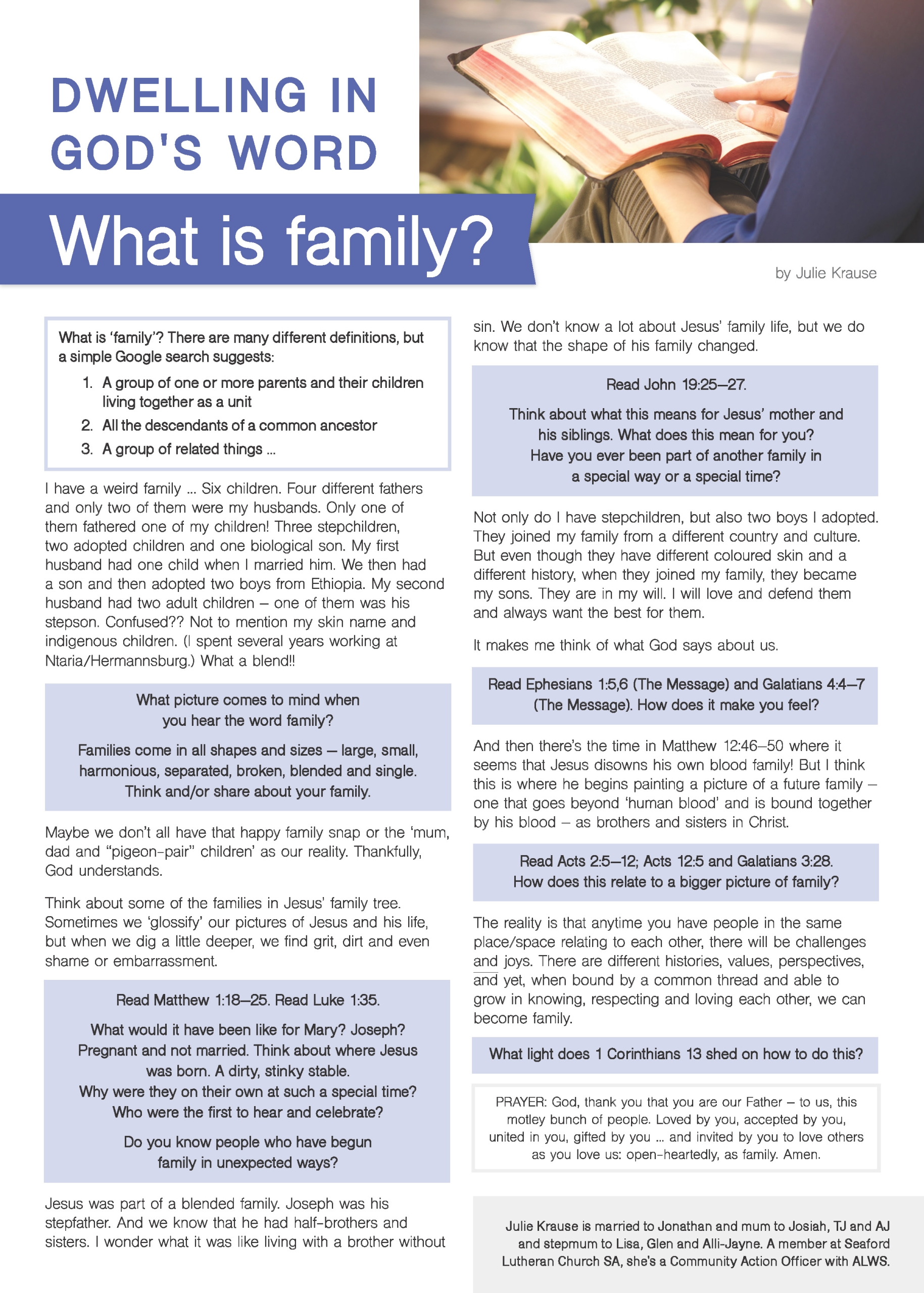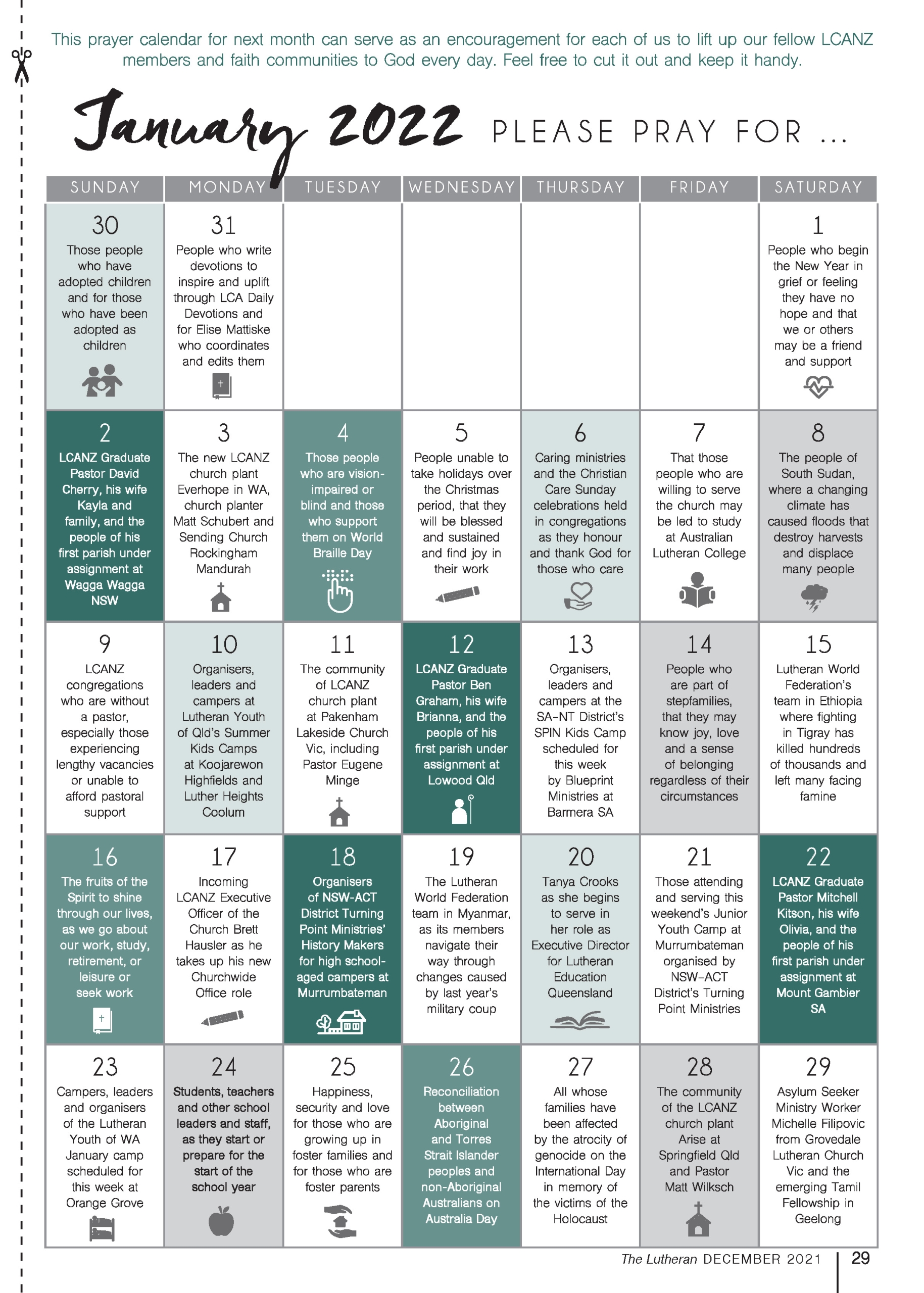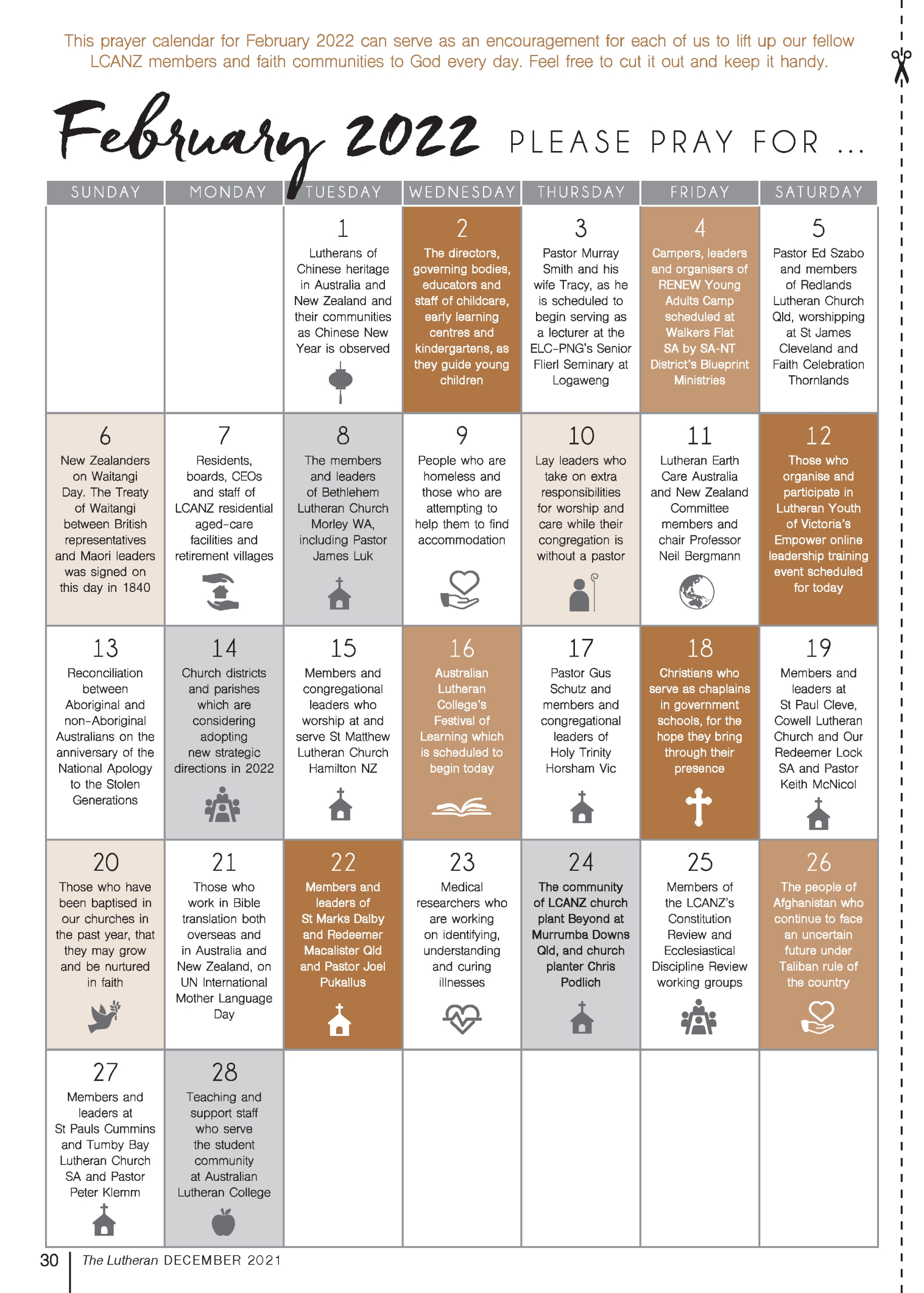by Lisa McIntosh
The devastating bushfires that razed parts of the Adelaide Hills in December 2019 not only claimed a life, killed livestock, destroyed homes and charred the landscape – they also left painful emotional scars for some locals.
So, to help restore the confidence of children from the area and encourage their connection with the surrounding countryside after the tragedy, Lobethal Lutheran School has teamed up with the nearby Trinity Lutheran congregation at Spring Head to establish a forest learning program on church land.
From this year students from the Foundation to Year 6 school have been going by bus one day each week to a forest glen haven at Spring Head church, to engage in ‘Beyond’, an ‘innovative, rich outdoor learning program’, says school Principal Steph Kriewaldt.
Students are given challenging but achievable tasks, linked to the Australian Curriculum, which are aimed at building their confidence, skills and independence. They are also allowed time to explore their thoughts, feelings and relationships. The day begins with a summit fire, to ground learners with the environment. This time and reflective practice develop inter and intra-personal skills, which are well documented as being directly linked to learning skills and wellbeing, Steph says.
‘All of our learners from five years old onwards light fires without matches, learn how to cut trees and wood, build shelter, tie knots and identify local flora and fauna – all learning experiences carefully designed by our facilitators to support student agency but also cover key literacy, numeracy and STEM (Science, Technology, Engineering and Mathematics) outcomes’, she says.
‘It’s been intentionally planned to develop confidence and resilience through challenge and risk in a range of nature play and discovery experiences. Beyond encourages the children’s emotional and physical development through exploration in a bushland environment.’
Originally a concept developed in Denmark, research has shown that ‘forest schools’ had students who were found to have developed strong social skills, an ability to work effectively in groups, and generally had high self-esteem and confidence.
The program at Lobethal Lutheran School, which involves all year levels and staff, has led to the school recently being recognised by The Educator national magazine as a 5-Star Innovative School for 2021.
‘This award is a fabulous acknowledgment of the outstanding hard work of staff, our awesome learners and special community, and a fabulous partnership between Lobethal Lutheran School and Spring Head church’, Steph says.
‘Beyond was initially developed after the devastating [Adelaide Hills] bushfires, as we were searching for a way to reconnect students with nature and nurture a positive relationship with the outdoors.
‘As we dug deeper into the amazing research around improved wellbeing, resilience, creativity and independence associated with forest learning, we knew that it was a must for our learners. We met with Nature Play SA and local bush experts to devise the program.
‘We knew that Spring Head church had the most beautiful site that would nurture authentic engagement with nature. The congregation supported us with ideas and material which are a big part of the success of the program. Pastor Tim Castle-Schmidt is a huge advocate for outdoor learning and was very supportive as we developed the program, and he pops along when we are on site. It has been great to have fellowship with the congregation as they share their unique space with our school.’
Established by the Lobethal Lutheran congregation in 1842, Lobethal Lutheran School today has just 52 students, making it one of the smaller schools in the Lutheran Education Australia community of 80 schools and approximately 40,000 learners – and this makes its recent recognition even more noteworthy.
Steph says Lobethal Lutheran was also the first primary school in Australia to offer a STEM-AG program. ‘Students work across traditional school levels finding and solving real problems within agriculture. STEM-AG begins with students, supported by teachers, identifying what they believe needs to be addressed within our local agricultural community.’
And she says feedback to the Beyond program has been ‘100 per cent positive’. ‘Parents are thrilled that their children are experiencing learning that develops resilience and have been surprised at how quickly the skills have been displayed – with little five-year-olds tying hitch knots and lighting fires.’
One parent, Nicky, says of daughter Amber: ‘I love that (she) can be pushed to challenge herself, it has been great to see her confidence and knowledge grow because of Beyond.’ While another parent, Nick, believes there have been benefits across the student body. ‘After the bushfires, it was really important that we watch out for the wellbeing of the kids’, he says. ‘This program has helped their wellbeing, their resilience has improved, and they feel okay to be in nature again.’
After each session at Beyond, the students write in a journal about their experiences, which Steph says also brings educational benefits. ‘A delightful surprise for our teachers has been the improved literacy outcomes as our learners are so engaged in journalling the learning of Beyond’, she says.
Teacher Meredith says: ‘The learning is authentic and there’s agency for the learners to drive the experiences. Engagement is a key factor of Beyond, everyone wants to learn, to work together. It’s a peaceful, joyful classroom.’
And what do the children think? Hudson says, ‘I love going to Beyond. It’s so much fun, we get so dirty’. Fellow student, Jensen, adds, ‘I like learning about the animals – catching the frogs and finding out about their habitat’, while James says, ‘It’s not like real school. It’s hard but it’s fun-hard.’
Other Lutheran schools to be named 5-Star Innovative Schools this year are Faith Lutheran College Redlands in Queensland and Immanuel College at Novar Gardens in South Australia.
You can find out more about the Beyond program at Lobethal Lutheran School through an online video at: https://youtu.be/Odk3cHFvx5s




